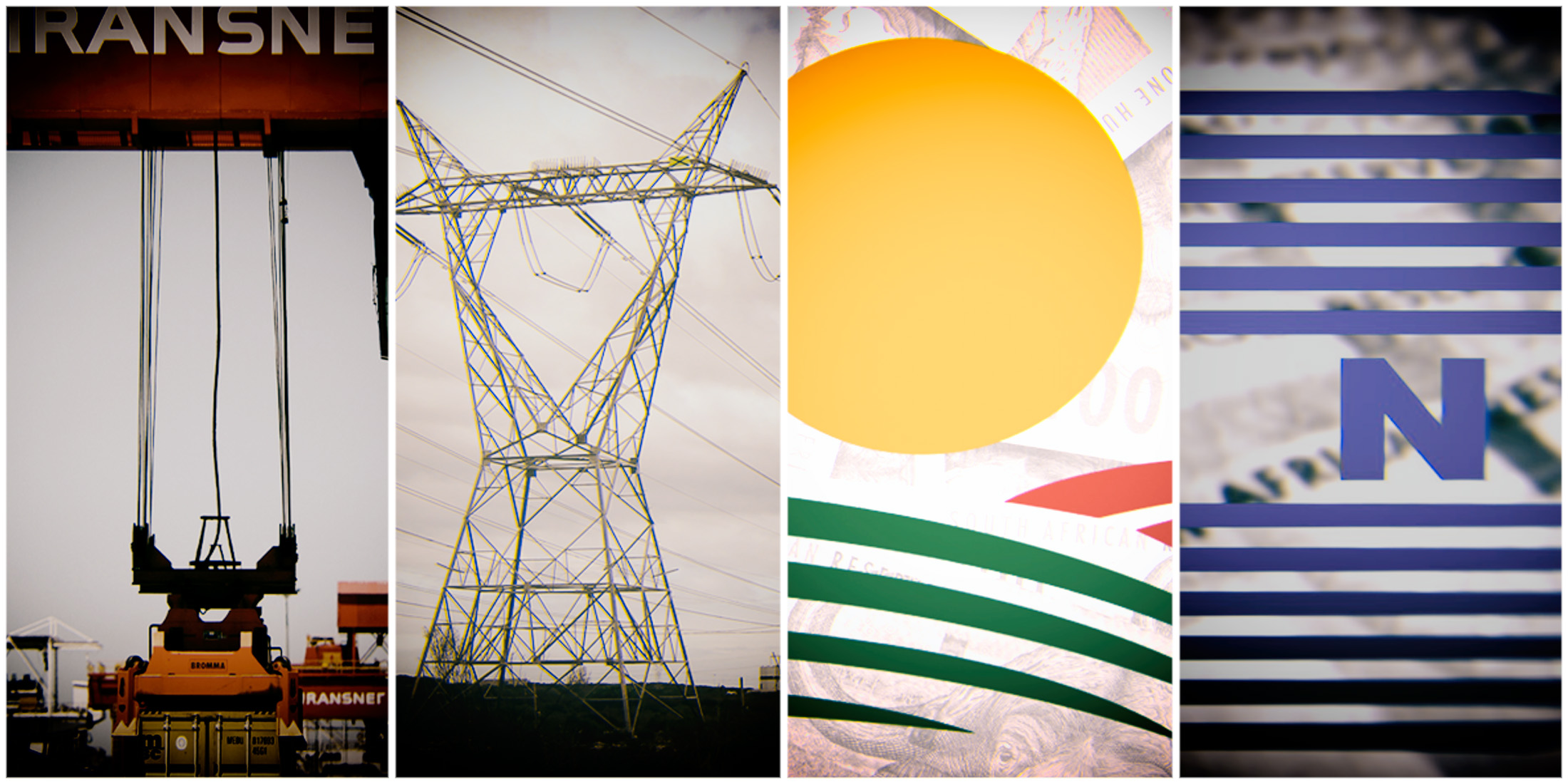Why is it that government can so often be so illogical? Things business people think of as totally obvious seem to fly over the heads of people in the public sector. Of course, business has its own problems: ambition, greed, egotism, unlawfulness, etc. But, usually, there is a consequent, logical process behind a business operation. Good luck finding that in government.
This occurred to me on Monday after I read that President Cyril Ramaphosa had announced that various state-owned enterprises – which previously used to be part of the Department of Public Enterprises – would be distributed to their policy departments.
Consequently, Eskom will now fall under the Minister of Electricity and Energy, Kgosientsho Ramokgopa; Transport Minister Barbara Creecy is the lucky recipient of responsibility for Transnet and SAA; Mining Minister Gwede Mantashe gets to look after state diamond miner Alexkor; Minister of Defence Angie Motshekga will take responsibility for state arms manufacturer Denel, and Forestry Minister Dion George will oversee the SA Forestry Company.
It’s all so delightfully logical. It’s so logical that you wonder why it has taken government 30 YEARS to come to the conclusion that the most appropriate person to have the Transnet CEO on speed dial is the transport minister, etc. What a belated triumph for common sense.
I remember former Transport Minister Mac Maharaj telling me years ago that, after arguing that Transnet should fall under the transport department, he was resoundingly shouted down by his colleagues. But how on earth, he argued, are you supposed to manage the transport sector if a huge chunk of the industry – which is owned by the state – is the responsibility of a different department?
The reason Maharaj never got close to having any say in Transnet is hard to fathom, but I think it comes down to the inertia that often besets state institutions. The reason things work the way they do is because they have always worked that way. That’s the public sector’s version of logic.
The history of SA’s state-owned enterprises goes more or less like this: the last apartheid government was going through its deathbed conversion phase. After having never valued human rights one iota, for example, the National Party suddenly discovered the virtues of a Bill of Rights. It would be funny if it wasn’t so depressing.
In the same way, state corporations were always an important part of the old South Africa. But with democracy looming, the managers of these organisations – and the staff, I suspect – viewed the new regime with trepidation and quickly discovered the virtues of the private sector. But privatising them would have seriously complicated the negotiations, so instead, a halfway house was established.
All the state-owned entities would be placed in a separate department, with the notion that this department would be responsible for preparing them for privatisation. They would just slip off the production line and into the private sector. However, the final decision would naturally depend on the policy position of the new government.
And as it turned out, the ANC was dead set against privatisation in any form for any reason since it saw privatisation as a loss of control of ‘the people’s’ assets. Successive varieties of the ANC all had one thing in common: they refused to allow any of the major corporations to enter the private sector. The rest, as we know, is history: they were gradually undermined, mismanaged, looted, and, one by one, got taxpayer-funded bailouts. In the billions. In the hundreds of billions.
And yet throughout, they remained in precisely the same structure established by the last apartheid government – until now.
There is one argument in favour of keeping the parastatals separate from the line department, which is based on the notion that the policy environment should be separate from the bodies which are subject to that policy, because, otherwise, you get big conflicts of interest.
Would a transport department which owns a trucking company (as the transport department now does) not skew the playing field in favour of its representative in the industry? I suppose there is this danger. It certainly existed in apartheid times when freight forwarders were required by law to transport a proportion of their orders by rail.
But this whole arrangement is supposed to be temporary because all the SOEs will notionally be gathered together again when they are placed in a state holding company, which is supposed to be able to raise capital and run commercially. This was the grand idea of the departing minister of Public Enterprises, Pravin Gordhan. But that won’t happen until the different entities are on a firm financial footing.
Can I just bet you that will never happen? I argue this for two reasons: First, the culture within the ANC is still firmly against privatisation. But more than that, do you really think the Transport Minister is going to give up control over a big chunk of the transport industry? I don’t think so. And now, it’s not just one minister whose nose will be out of joint if his or her toys are externalised – it’s a quarter of the Cabinet.
And second (excuse the cynicism), I just don’t see SOEs ever being in a state to run commercially; it just never happens. The incentive structures and accountability systems, unlike in the actual private sector, are not aligned for that to take place over time, as countless examples around the world have demonstrated.
They are, it’s sad to say, congenitally unable to operate logically. DM
Business Maverick
After the Bell: The logic of SOEs forming part of line departments





